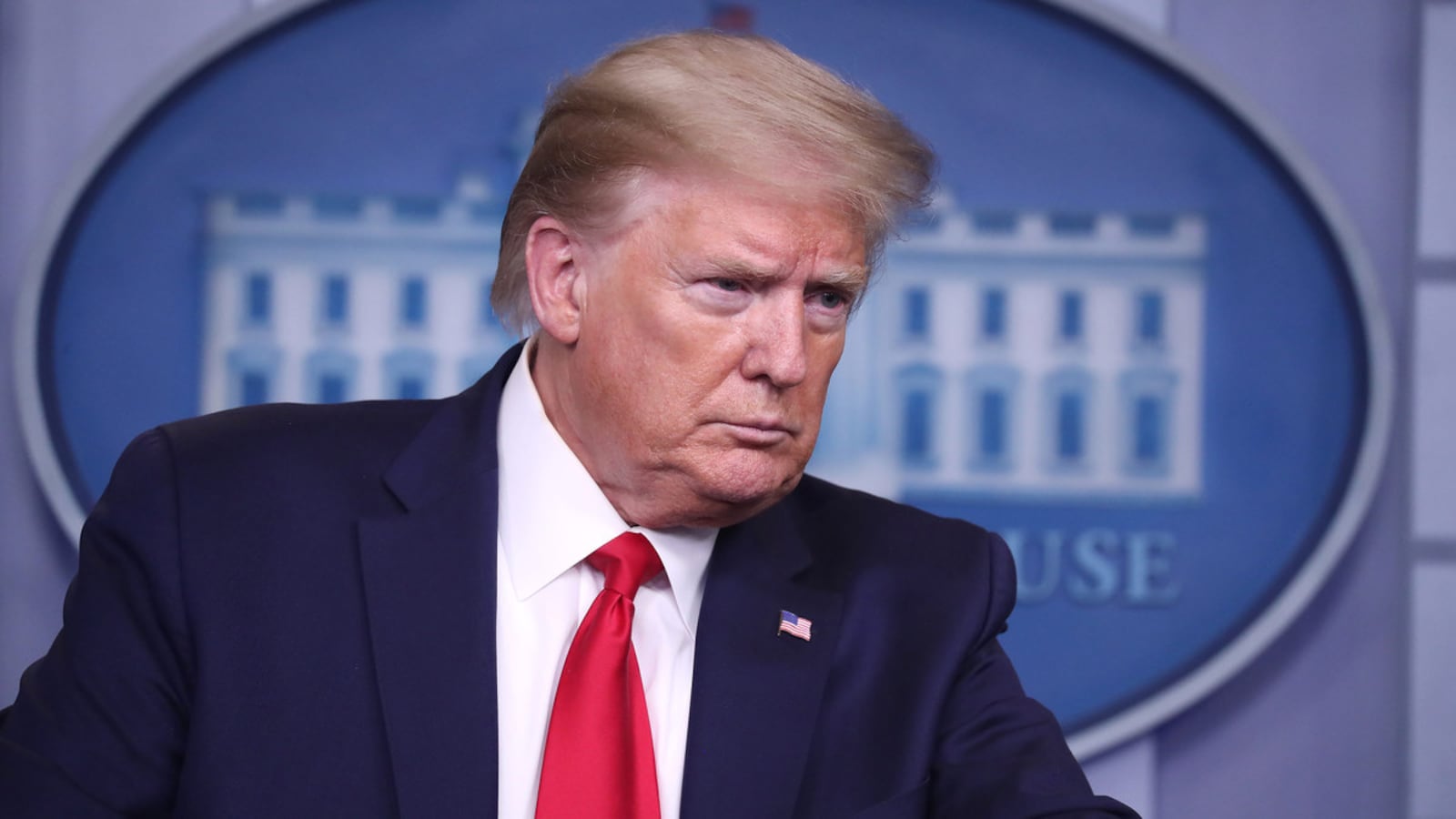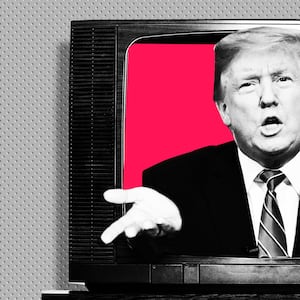ABUJA, Nigeria—Just hours after U.S. President Donald Trump suggested research into whether coronavirus might be treated by injecting disinfectant into the body, viral messaging about drinking such liquids or taking them intravenously began to spread across Nigeria on WhatsApp.
One typical message seen by The Daily Beast claims falsely that the U.S. government has “approved the use of disinfectants with high alcohol content and anti-microbial properties to treat patients with coronavirus.” Another WhatsApp message broadcast far and wide in this most populous African nation says disinfectants “work instantly” and Trump "has given the go ahead" for them to be used in COVID-19 treatment.
“I initially thought the message was authentic,” said Isaac Anani, who works at a private medical lab near the Nigerian capital, and found the idea at best implausible. He received the WhatsApp message from a “trusted friend” as early as 5 a.m. local time (midnight EDT), only a few hours after Trump appeared to suggest, in all seriousness, that his scientists should look into disinfectant and ultraviolet light—which kills the virus on counters or door handles—as treatments for the disease it causes when the virus bonds with cells inside the body.
“I see the disinfectant where it knocks it out in a minute,” Trump said during Thursday’s White House coronavirus task force briefing after an official presented the results of U.S. government research that showed bleach could kill the coronavirus in saliva or respiratory fluids within five minutes—outside the body.
“And is there a way we can do something like that, by injection inside or almost a cleaning?” Trump asked the experts in the room. “So it’d be interesting to check that.”
After an international uproar on Friday, Trump said he was joking. But that was clearly not the case on Thursday, and in any event the suggestion took on deadly aspects here in Africa.
Even before local TV stations in Nigeria began to report the highlights of Thursday’s White House press briefing messages claiming that Trump had approved the use of disinfectants had gone viral. Those who were skeptical called physicians to confirm if it was safe to go with the U.S. president’s suggestion.
“Early this morning I received calls from people asking if they could take disinfectants either as a precaution or to treat symptoms of coronavirus,” said Dr. Collins Anyachi at the Department of Family Medicine in the University of Calabar Teaching Hospital told The Daily Beast on Friday. “It is shocking that someone could suggest that.”
There were several signs earlier Friday that people in Nigeria may be taking messages about ingesting disinfectants seriously. One local shop in the country's capital, Abuja, recorded more disinfectant sales on this single day than it had had since the start of the month.
It’s not the first time disinformation from Trump regarding treatment for the coronavirus has created confusion and anxiety in Nigeria, causing people to act contrary to the advice of public health experts.
Last month, Trump’s remarks that the anti-malarial drug chloroquine had been approved in effect by the U.S. Food and Drug Administration (FDA) to treat COVID-19 and had shown “very, very encouraging early results” in patients who tested positive for the coronavirus pushed thousands of anxious people in Nigeria to gather at pharmacies and patent medicine stores to buy the drug. A CNN report said at least three people in the city of Lagos overdosed on chloroquine and had to be hospitalized. Like his remarks about chloroquine, Trump's suggestions about disinfectants have been widely circulated on WhatsApp.
The messaging app is widely used across Africa. Telecom operators have created WhatsApp-only data bundles for millions of users, and it is the favored social medium, rather than Facebook or Twitter, for spreading information, gossip, and outright lies. Harmful misinformation about health emergencies is particularly common among older users.
During the 2014 Ebola outbreak in West Africa, WhatsApp messages convinced some people that drinking salt water and bathing in it could ward off the disease spreading across parts of the region, leading to the death of two people who consumed the bogus remedy and the hospitalization of several others.
Some parts of African society may be particularly receptive to Trump’s bizarre suggestions because misinformation about bleach curing illnesses is not new on the continent, especially in the sub-Saharan region.
Last year, The Daily Beast reported that the Facebook-fueled “Miracle Mineral Solution” (“MMS”) movement, which falsely claimed a dangerous chlorine dioxide cocktail can cure several illnesses, including autism and infertility, won support from IAMtv. The web-based channel is fronted by Alan Keyes, a former diplomat and adviser to President Ronald Reagan who is reportedly helping it spread its influence from Uganda to the halls of power in the United States. IAMtv and several other distributors have fed MMS to children and babies in Uganda despite the FDA warning that "the solution, when mixed, develops into a dangerous bleach which has caused serious and potentially life-threatening side effects.”
As disinformation about bleaches spreads this time around in Nigeria, doctors have warned that adhering to such advice would be extremely dangerous. Taken internally, as the warning labels on most bottles make clear, the stuff is poison, pure and simple. “The outcome could be fatal,” said Dr. Anyachi.







